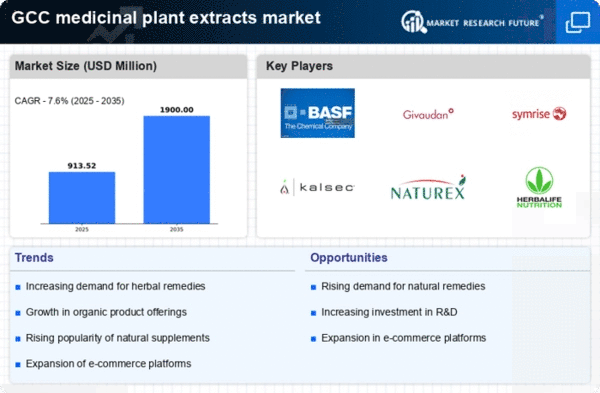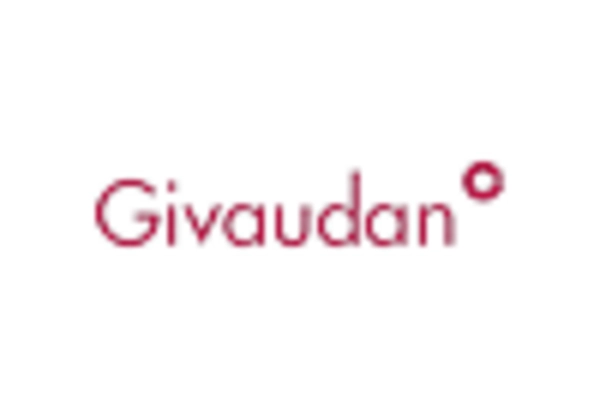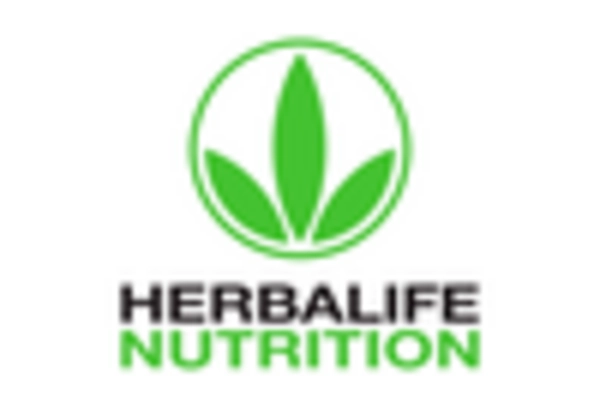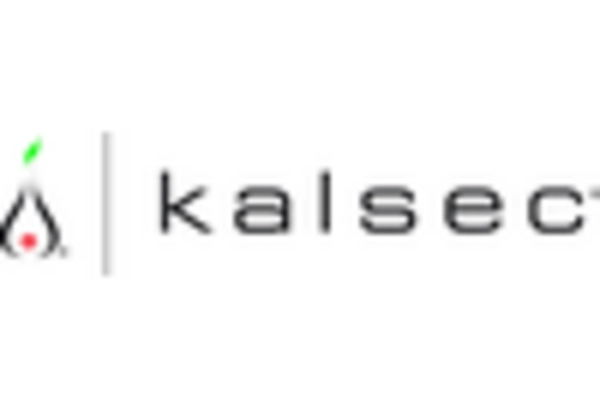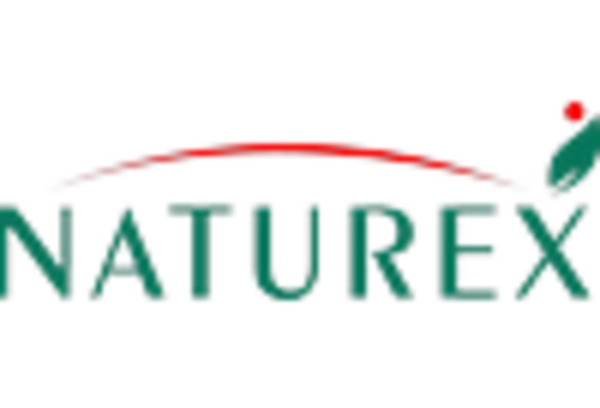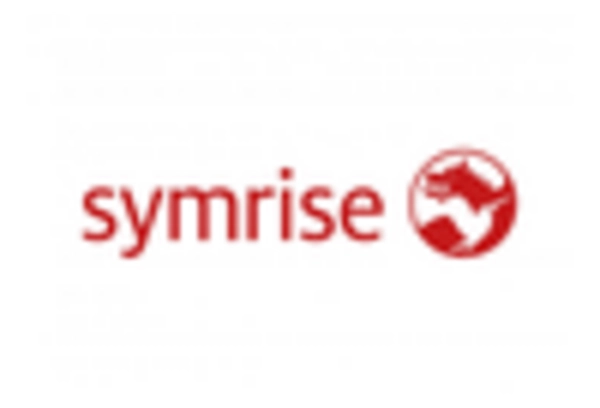Increasing Health Consciousness
The growing awareness of health and wellness among consumers in the GCC region appears to be a significant driver for the medicinal plant-extracts market. As individuals become more informed about the benefits of natural remedies, there is a noticeable shift towards herbal products. This trend is reflected in market data, indicating that the demand for plant-based supplements has surged by approximately 15% annually. Consumers are increasingly seeking alternatives to synthetic pharmaceuticals, which may lead to a sustained growth trajectory for the medicinal plant-extracts market. Furthermore, the rise in lifestyle-related health issues has prompted a search for preventive measures, further bolstering the market's expansion. The medicinal plant-extracts market is thus positioned to benefit from this heightened health consciousness, as consumers prioritize natural solutions for their well-being.
Rising Popularity of Organic Products
The trend towards organic products is gaining momentum in the GCC, which appears to be a crucial driver for the medicinal plant-extracts market. Consumers are increasingly inclined to choose organic options, driven by concerns over chemical residues and the desire for sustainable consumption. Market analysis suggests that the organic segment of the medicinal plant-extracts market could witness a growth rate of around 12% annually. This shift is not only reflective of changing consumer preferences but also indicates a broader movement towards environmentally friendly practices. The medicinal plant-extracts market is likely to benefit from this trend, as producers adapt their offerings to meet the demand for organic certifications and sustainable sourcing practices.
Regulatory Support for Herbal Products
Regulatory frameworks in the GCC region are evolving to support the use of herbal products, which may positively impact the medicinal plant-extracts market. Governments are increasingly recognizing the therapeutic potential of plant-based remedies, leading to the establishment of guidelines that facilitate their integration into healthcare systems. This regulatory support could enhance consumer confidence in herbal products, potentially increasing market penetration. For instance, recent initiatives have streamlined the approval process for herbal medicines, which may result in a projected market growth of 10% over the next five years. The medicinal plant-extracts market stands to gain from these favorable regulations, as they encourage innovation and the introduction of new products that align with consumer preferences for natural health solutions.
Cultural Heritage and Traditional Practices
The rich cultural heritage of the GCC region plays a pivotal role in shaping the medicinal plant-extracts market. Traditional practices that incorporate herbal remedies are deeply rooted in the local culture, which may drive consumer interest in these products. As younger generations seek to reconnect with their heritage, there is a resurgence in the use of traditional herbal medicines. This cultural inclination could potentially lead to a market growth of approximately 8% over the next few years. The medicinal plant-extracts market is likely to capitalize on this trend by promoting products that resonate with cultural values and historical significance, thereby appealing to both local and expatriate populations.
Technological Advancements in Extraction Methods
Innovations in extraction technologies are transforming the medicinal plant-extracts market, particularly in the GCC region. Advanced methods such as supercritical fluid extraction and cold pressing are enhancing the efficiency and quality of plant extracts. These technologies may lead to higher yields and better preservation of bioactive compounds, which could attract more consumers seeking potent herbal products. Market data suggests that the adoption of these technologies could increase production efficiency by up to 20%, thereby reducing costs and improving profit margins for manufacturers. The medicinal plant-extracts market is thus likely to experience growth as companies leverage these advancements to offer superior products that meet the evolving demands of health-conscious consumers.


